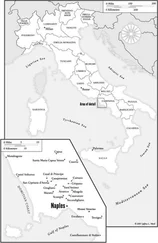Eric Ambler - Journey Into Fear
Здесь есть возможность читать онлайн «Eric Ambler - Journey Into Fear» весь текст электронной книги совершенно бесплатно (целиком полную версию без сокращений). В некоторых случаях можно слушать аудио, скачать через торрент в формате fb2 и присутствует краткое содержание. Год выпуска: 1940, ISBN: 1940, Издательство: Knopf, Жанр: Шпионский детектив, на английском языке. Описание произведения, (предисловие) а так же отзывы посетителей доступны на портале библиотеки ЛибКат.
- Название:Journey Into Fear
- Автор:
- Издательство:Knopf
- Жанр:
- Год:1940
- ISBN:9780307949967
- Рейтинг книги:5 / 5. Голосов: 1
-
Избранное:Добавить в избранное
- Отзывы:
-
Ваша оценка:
- 100
- 1
- 2
- 3
- 4
- 5
Journey Into Fear: краткое содержание, описание и аннотация
Предлагаем к чтению аннотацию, описание, краткое содержание или предисловие (зависит от того, что написал сам автор книги «Journey Into Fear»). Если вы не нашли необходимую информацию о книге — напишите в комментариях, мы постараемся отыскать её.
Journey Into Fear — читать онлайн бесплатно полную книгу (весь текст) целиком
Ниже представлен текст книги, разбитый по страницам. Система сохранения места последней прочитанной страницы, позволяет с удобством читать онлайн бесплатно книгу «Journey Into Fear», без необходимости каждый раз заново искать на чём Вы остановились. Поставьте закладку, и сможете в любой момент перейти на страницу, на которой закончили чтение.
Интервал:
Закладка:
Moeller, Banat, Josette and José had gone to their cabins immediately after lunch. Signora Beronelli had been induced to make the fourth with the Mathis and Mr. Kuvetli and appeared to be enjoying herself. Her son sat by her watching her jealously. Graham returned in desperation to the magazines. Towards five o’clock, however, the bridge four showed signs of disintegrating and, to avoid being drawn into a conversation with Mr. Kuvetli, Graham went out on deck.
The sun, obscured since the day before, was pouring a red glow through a thinning of the clouds just above the horizon. To the east the long, low strip of coast which had been visible earlier was already enveloped in a slate grey dusk and the lights of a town had begun to twinkle. The clouds were moving quickly as for the gathering of a storm and heavy drops of rain began to slant in on to the deck. He moved backwards out of the rain and found Mathis at his elbow. The Frenchman nodded.
“Was it a good game?” Graham asked.
“Quite good. Madame Beronelli and I lost. She is enthusiastic, but inefficient.”
“Then, except for the enthusiasm, my absence made no difference.”
Mathis smiled a little nervously. “I hope that your headache is better.”
“Much better, thank you.”
It had begun to rain in earnest now. Mathis stared out gloomily into the gathering darkness. “Filthy!” he commented.
“Yes.”
There was a pause. Then:
“I was afraid,” said Mathis suddenly, “that you did not wish to play with us. I could not blame you if such were the case. This morning you were good enough to make an apology. The true apology was due from me to you.”
He was not looking at Graham. “I am quite sure …” Graham began to mumble, but Mathis went on as if he were addressing the seagulls following the ship. “I do not always remember,” he said bitterly, “that what to some people is good or bad is to others simply boring. My wife has led me to put too much faith in the power of words.”
“I’m afraid I don’t understand.”
Mathis turned his head and smiled wryly. “Do you know the word encotillonné?”
“No.”
“A man who is governed by his wife is encotillonné.”
“In English we say ‘hen-pecked.’ ”
“Ah, yes?” Obviously he did not care what was said in English. “I must tell you a joke about it. Once I was encotillonné . Oh, but very badly! Does that surprise you?”
“It does.” Graham saw that the man was dramatising himself, and was curious.
“My wife used to have a very great temper. She still has it, I think, but now I do not see it. But for the first ten years of our marriage it was terrible. I had a small business. Trade was very bad and I became bankrupt. It was not my fault, but she always pretended that it was. Has your wife a bad temper, Monsieur?”
“No. Very good.”
“You are lucky. For years I lived in misery. And then one day I made a great discovery. There was a socialist meeting in our town and I went to it. I was, you must understand, a Royalist. My family had no money, but they had a title which they would have liked to use without their neighbours sniggering. I was of my family. I went to this meeting because I was curious. The speaker was good, and he spoke about Briey. That interested me because I had been at Verdun. A week later we were with some friends in the café and I repeated what I had heard. My wife laughed in a curious way. Then when I got home I made my great discovery. I found that my wife was a snob and more stupid than I had dreamed. She said that I had humiliated her by saying such things as if I believed them. All her friends were respectable people. I must not speak as if I were a workman. She cried. I knew then that I was free. I had a weapon that I could use against her. I used it. If she displeased me I became a socialist. To the smug little tradesmen whose wives were her friends I would preach the abolition of profit and the family. I bought books and pamphlets to make my arguments more damaging. My wife became very docile. She would cook things that I liked so that I would not disgrace her.” He paused.
“You mean that you don’t believe all these things you say about Briey and banking and capitalism?” demanded Graham.
Mathis smiled faintly. “That is the joke about which I told you. For a time I was free. I could command my wife and I became more fond of her. I was a manager in a big factory. And then a terrible thing happened. I found that I had begun to believe these things I said. The books I read showed me that I had found a truth. I, a Royalist by instinct, became a socialist by conviction. Worse, I became a socialist martyr. There was a strike in the factory and I, a manager, supported the strikers. I did not belong to a union. Naturally! And so I was dismissed. It was ridiculous.” He shrugged. “So here I am! I have become a man in my home at the price of becoming a bore outside it. It is funny, is it not?”
Graham smiled. He had decided that he liked Monsieur Mathis. He said: “It would be funny if it were wholly true. But I can assure you that it was not because I was bored that I did not listen to you last night.”
“You are very polite,” began Mathis dubiously; “but …”
“Oh, there is no question of politeness. You see, I work for an armaments manufacturer, and so I have been more than interested in what you have had to say. On some points I find myself in agreement with you.”
A change came over the Frenchman’s face. He flushed slightly; a small delighted smile hovered round his lips; for the first time Graham saw the tense frown relax. “On which points do you not agree?” he demanded eagerly.
At that moment Graham realised that, whatever else had happened to him on the Sestri Levante , he had made at least one friend.
They were still arguing when Josette came out on deck. Unwillingly, Mathis interrupted what he was saying to acknowledge her presence.
“Madame.”
She wrinkled her nose at them. “What are you discussing? It must be very important that you have to stand in the rain to talk about it.”
“We were talking politics.”
“No, no!” said Mathis quickly. “Not politics, economics! Politics are the effect. We were talking about causes. But you are right. This rain is filthy. If you will excuse me, please, I will see what has happened to my wife.” He winked at Graham. “If she suspects that I am making propaganda she will not be able to sleep to-night.”
With a smile and a nod he went. Josette looked after him. “He is nice, that man. Why does he marry such a woman?”
“He is very fond of her.”
“In the way that you are fond of me?”
“Perhaps not. Would you rather we went in?”
“No. I came out for some air. It will not be so wet round on the other side of the deck.”
They began to walk round to the other side. It was dark now and the deck lights had been put on.
She took his arm. “Do you realise that to-day we have not really seen each other until now? No! Of course you do not realise it! You have been amusing yourself with politics. It does not matter that I am worried.”
“Worried? What about?”
“This man who wants to kill you, imbecile! You do not tell me what you are going to do at Genoa.”
He shrugged. “I’ve taken your advice. I’m not troubling about him.”
“But you will go to the British Consul?”
“Yes.” The moment had come when he must do some really steady lying. “I shall go straight there. Afterwards I shall have to see one or two people on business. The train does not leave until two o’clock in the afternoon, so I think that I shall have time. We can meet on the train.”
She sighed. “So much business! But I shall see you for lunch, eh?”
Читать дальшеИнтервал:
Закладка:
Похожие книги на «Journey Into Fear»
Представляем Вашему вниманию похожие книги на «Journey Into Fear» списком для выбора. Мы отобрали схожую по названию и смыслу литературу в надежде предоставить читателям больше вариантов отыскать новые, интересные, ещё непрочитанные произведения.
Обсуждение, отзывы о книге «Journey Into Fear» и просто собственные мнения читателей. Оставьте ваши комментарии, напишите, что Вы думаете о произведении, его смысле или главных героях. Укажите что конкретно понравилось, а что нет, и почему Вы так считаете.












